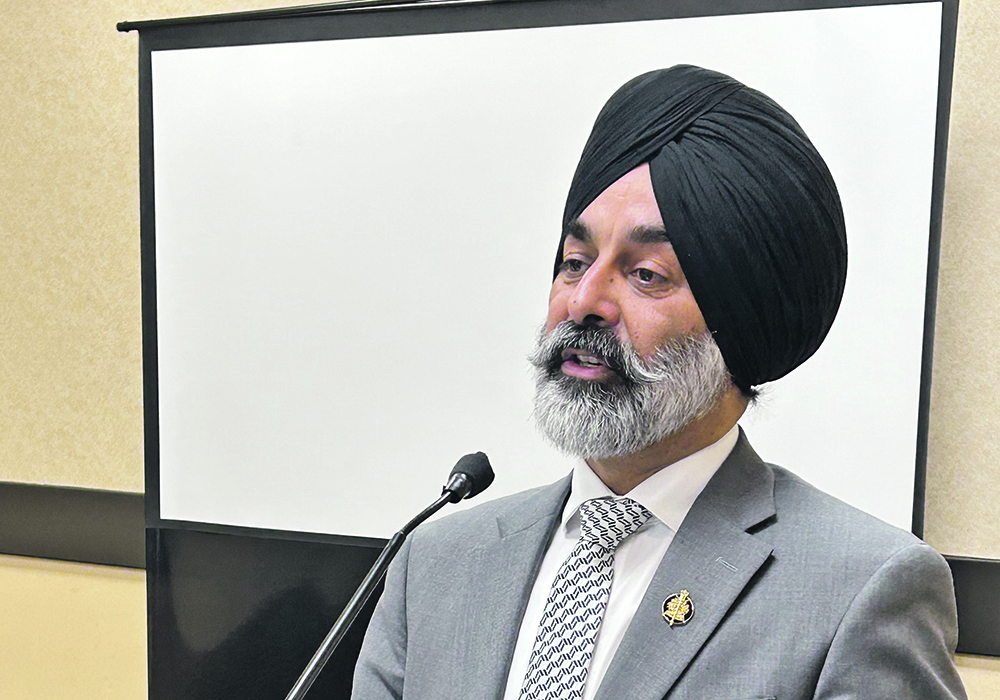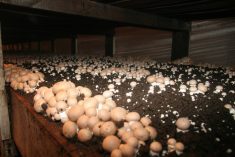Immigrants from countries such as India have a deep passion for agriculture but are unaware of what’s available
This story is part of a series looking into the pools of human talent within Canada’s population that could help fill the growing labour shortage that is crippling many farms.
Diljeet Brar knows the pain of not being a farmer. It’s common in his very urban Sikh community in Winnipeg. Thousands of fellow South Asians grew up on farms in India but are divorced from the soils of Western Canada.
“In their chest there is still a desire to be called a farmer,” said Brar, who was an instructor at an agricultural university in India before immigrating to Winnipeg, where he took up a position at Manitoba Agriculture.
Read Also

Canola oil transloading facility opens
DP World just opened its new canola oil transload facility at the Port of Vancouver. It can ship one million tonnes of the commodity per year.
Other stories in this series:
- African-Canadians seen as untapped ag resource
- Potential Indigenous labour force should not be ignored
He is now the MLA for the Burrows constituency in Winnipeg, which is home to many South Asians, Filipinos and other minority communities.
“Like me, many, many of them are the first persons in their families who did not actually farm.”
Brar would love to see some of the young South Asians who have immigrated to Winnipeg and other Prairie cities in recent years take work, professions and careers in agriculture. However, right now there seem to be few bridges to get them there.
When young South Asians arrive in the city, often on student visas or before they have received full Canadian citizenship, they have fond feelings for the rural farming life but little chance to even consider agriculture.
“They want to get into it,” said Brar.
“They get so much into that settlement struggle (for their first 10 years in Canada) that they don’t have time to think about it. They don’t have time to visit a farm. They don’t have time to think about it or experience it.”
Often by the time South Asians are fully settled and able to move ahead, they have established jobs and businesses in the city. Once they have amassed the sort of capital that could be used to get into production farming, they are already deeply invested in urban industries, such as construction and property development. Agriculture fades from consideration.
Connecting young South Asians to farms and other agricultural businesses early could help avoid that loss of connection.
Brar thinks university and college students would prefer to work on a farm in the summer to working in the fast food industry, but few know that there are jobs on farms and in agriculture businesses in the countryside.
North American farming is a daunting business to consider entering. It requires enormous amounts of capital and expertise. However, the broader agriculture industry is many times the size of the farming sector, something that could offer dynamic, ambitious and educated South Asians a better path into ag.
“Maybe they’re working for an agriculture business, or working for a big farm, or working on a farm on a seasonal basis during seeding or harvest, or getting to being a farm manager for a farmer,” said Brar.
Connecting those ag job opportunities to urban immigrant populations could help lure some out of the city.
So too could offering young South Asians a chance to see Prairie farming and the bustling industries operating in agriculture. Many young people from the Indian sub-continent know what farming is like there but have almost no sense of what farming is like in this very different land.
Brar wonders if established South Asians or others could set up demonstration farms to give young people and new Canadians a chance to get out and see crops, soil and machinery in the field.
“That’s how we can bring people closer to the land … to create that opportunity while they’re doing their other jobs (in the city),” said Brar.
“Evenings and weekends, they (could be) spending time on the farm, inviting their friends and relatives to the farm on the weekend.”
The approach could help pull young new Canadians from the city to retain their connection with agriculture and to seek careers and business opportunities in rural Canada.
With South Asian Canadians born and raised in Canadian cities, it’s a greater challenge.
When Brar was a boy in India, he and his friends didn’t play with toy cars. They were interested in farm machinery like what their families operated.
“We played with wooden tractors,” he said.
That created an ongoing hankering for their families’ farming lives, something that doesn’t fade with time.
“They have a passion. They have a desire to go back to farm, to click pictures of tractors,” said Brar.
Brar feels a sense of guilt over his children’s and his community’s loss of connection to agriculture from growing up in urban Canada.
“I strongly feel that with my kids and my friends’ kids, the urban community’s kids, that they have no idea about food production, and that’s not good.”
Brar hopes to see South Asian immigrants engage with farmers and rural Canada. There are enormous holes in the agricultural workforce in every area and a tremendous desire by new immigrants to get ahead in their new country. That’s a great combination for mutual success.
Even now, as a successful and respected man in Manitoba’s agriculture industry, as a South Asian community leader and as an MLA representing tens of thousands of Manitobans from all backgrounds, he hasn’t given up on his dreams to be a farmer, even if only in tiny way.
“I still have that desire,” said Brar with a wistful tone.
“Before I die, I want to own a little farm. It could be just five acres, but I want to ride on a tractor and seed some crops and harvest them, so I’m not claimed to be the first person in my family not to have actively farmed.
“Many, many people in my community share these emotions.”


















